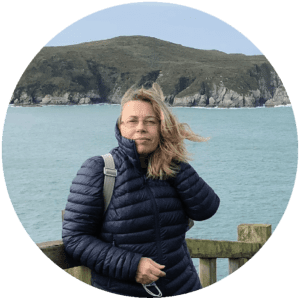Building alliances for Natura 2000!
In March 2020 the second course of the LIFE e-Natura 2000.edu project started: “Building alliances for Natura 2000 Management”, which was led by Fungobe and EUROPARC Spain. Here you can read the experience of participant Irene Estévez, from the Lonxanet Foundation (A Coruña, Spain).
The course
LIFE e-Natura 2000.edu set out to build capacity through innovative learning tools. This innovative three-year project explores the potential of building new approaches and learning methods to improve knowledge and capacity amongst Natura 2000 Managers in both public and private land, across the EU. Taking a competence-based approach, it wants to enable peers to connect and learn about what managers need to know and be able to do. The project is led by EUROPARC, with the support of six partners.
- ProPark,
- FUNGOBE / EUROPARC Spain,
- TESAF Department of the University of Padova,
- European Landowners Organisation,
- Kullaberg Nature Reserve.
As we are slowly reaching the end of the project, we want to highlight some of the experiences the participants have made. We already published a small recap written by project leader Neil McIntosh, who took us through the strange year of 2020 and how the EUROPARC led course “Competent Inclusive Communication” fared. Now, it is time to hear from biologist Irene Estévez who followed the Fungobe and EUROPARC Spain led Course II “Building alliances for Natura 2000 Management”:

Irene Estévez
Marine alliances
My name is Irene Estévez and I am from Galicia, in Spain. I am a biologist and have worked in fisheries management for several years, especially in the co-management of the coastal maritime area in the northwest of the country. Working as a project officer in the Lonxanet Foundation, gives me the opportunity to participate in projects that help to strengthen artisanal fisheries and their communities, as well as establishing links with the fishing sector that facilitate joint proposals and projects and actions based on criteria of sustainability and social participation.
Getting to know and sharing other experiences during the course has shown us how
participatory processes, guided by the principles of governance, are the basis of good management that promotes environmental, economic, and social sustainability.
Through numerous examples we have seen how placing people, their needs, their motivations and their capacities in the center is the most adequate premise to achieve an optimal organization. And we also learned that placing ourselves in this scenario helps us to evaluate our own personal skills and to identify, throughout the course, those most necessary for our work.
“Alliances for Natura 2000” has also allowed me to share my experience in the creation, implementation, and management of Marine Reserves of Fishing interest in Galicia (NWSpain) particularly in the Marine Protected Area “Ría de Cedeira”, located in ZEC “Costa Artabra”. This gave me the opportunity to work with amazing people and be aware that appreciating local ecological knowledge, having direct contact with local stakeholders, and learning from them, is the true way to effective governance. Showing how the institution and the users can work together with scientists and collaborate with public administration and non-governmental organizations was fundamental to turning ideas and projects into real, useful schemes, beneficial for society as a whole.
My challenges as a professional involved in Natura 2000 lead me to continue worrying about the management of the marine and coastal environment. Nowadays the direct and cooperative contact between all the actors related to especially vulnerable areas and the aspects of participation and governance are still quite underdeveloped.
Therefore, this course has been a great opportunity to share knowledge, feelings, and experiences with amazing people. Even though it could not be held in person due to the coronavirus pandemic, I believe that we have managed to improve our capacities, learn new tools for effective communication and conflict resolution, and finally, continue to make progress in the effective management of our natural areas and nature 2000 sites.
